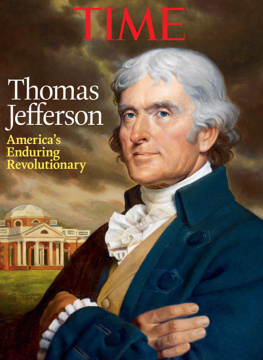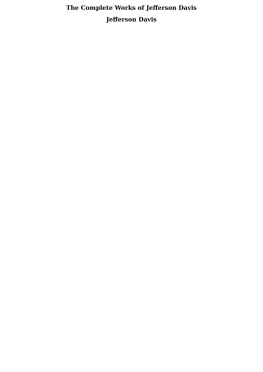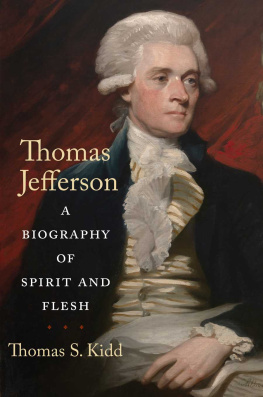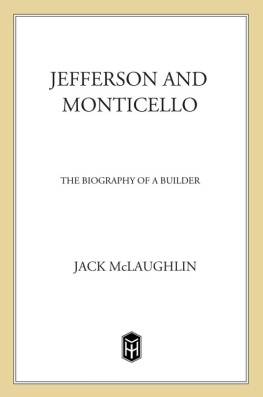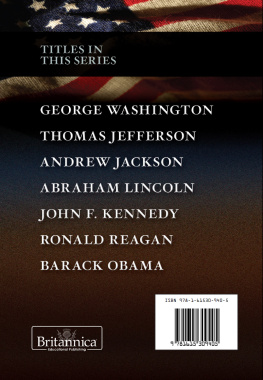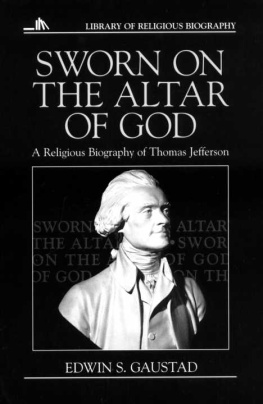THOMAS JEFFERSON
THE APOSTLE OF AMERICANISM
* * *
GILBERT CHINARD
*
Thomas Jefferson
The Apostle of Americanism
First published in 1929
ISBN 978-1-62012-688-2
Duke Classics
2012 Duke Classics and its licensors. All rights reserved.
While every effort has been used to ensure the accuracy and reliability of the information contained in this edition, Duke Classics does not assume liability or responsibility for any errors or omissions in this book. Duke Classics does not accept responsibility for loss suffered as a result of reliance upon the accuracy or currency of information contained in this book.
Contents
*
Introduction
*
This study of Jefferson's mind is the indirect outcome of an ambitiousundertaking on which I launched about ten years ago. My original purposehad been to determine more exactly than had heretofore been done thecontribution of the French thinkers to the political philosophy ofThomas Jefferson.
The points of similarity were obvious: the parallelism between thetheory of natural rights and the Dclaration des droits de l'homme ispatent; the American statesman shared with the French "doctrinaires" thesame faith in the ultimate wisdom of the people, the same belief in thenecessity of a free press and religious freedom. Many of his utteranceshad a sort of French ring and countless Gallicisms could be discoveredin his letters. He spent in France the five years immediately precedingthe Revolution of 1789; he knew Madame d'Houdetot, Madame Helvtius,Lafayette, Condorcet, Cabanis, Du Pont de Nemours, l'Abb Morellet andDestutt de Tracy. He was accused of bringing back from France the"infidel doctrines" of the philosophers and to some of hiscontemporaries he appeared as the embodiment of Jacobinism. How couldsuch a man have failed to be influenced by the political, social andeconomic theories which brought about the great upheaval of the end ofthe eighteenth century?
A rapid survey of the Jefferson papers in the Library of Congress and inthe Massachusetts Historical Society soon convinced me that the subjecthad scarcely been touched, notwithstanding the controversy that had beenraging about the origin of Jefferson's political ideas for more than acentury. Hundreds of letters written to Jefferson by Frenchcorrespondents were preserved in the precious archives, and hadapparently never been consulted. Many days were spent in the rotunda ofthe Manuscript Division, turning the leaves of the two hundred andthirty volumes of the Jefferson papers. Documents after documents threwa new light on the mind of the great Americanletters hastily written,rough drafts corrected and recorrected, press copies blurred and hardlydecipherable, yellowed scraps of paper crumbling to pieces but piouslyrestored; more letters in a regular, precise hand, the hand of a man whohad been a surveyor and who drew rather than wrote. Fifty years of themost eventful period of American history, told by the chiefparticipants, rose from the old documents, and day by day was revealedmore clearly the clean-cut figure of Jefferson the American.
First of all, the tall, lanky boy, born in a frame dwelling by theRivanna,not a farmer boy by any means, but the son of an ambitious,energetic and respected surveyor, a landowner and a colonel in themilitia, and of a mother in whose veins ran the best blood of Virginia.The stern and pious education received in the family, the reading of theBible and Shakespeare, the lessons of Reverend Maury, the son of aHuguenot who took the boy as a boarding student, the years at Williamand Mary College in the brilliant, animated, but small capital ofVirginia, the conversations with Mr. Small, Mr. Wythe and GovernorFauquier, the Apollo tavern, the first love affair, and the longroamings in the hills surrounding Shadwell. More years as a student oflaw and as a law practitioner, quickly followed by his marriage with aVirginia "belle", and Thomas Jefferson had settled down, a promisingyoung man, a talented lawyer, a respectable landowner, an omnivorousreader who culled from hundreds of authors moral maxims, bits of poetry,historical, legal and philosophical disquisitions and copied them in aneat hand in his commonplace books. But curiously enough during theseformative years, the direct influence of the French philosophers wasalmost negligible. He knew Montesquieu's "Esprit des Lois" andVoltaire's "Essai sur les moeurs", but he used both books asrepertories of facts rather than as founts of ideas. His masters werethe Greeks of old, Homer and Euripides, then Cicero and Horace, finallyBolingbroke and above all the historians of the English law in whoseworks he studied the principles, development and degeneration of freeinstitutions.
The choice of the abstracts made by this young Virginian who was stillin his twenties already reveals an extraordinary capacity for absorbingknowledge and a most remarkable independence of thought. As he hadplanned to build a house according to his own plans, he had likewisedecided to construct for himself, with material just as carefullychosen, the intellectual house in which he intended to live. Had not theRevolution intervened, Thomas Jefferson would probably have spent hisyears in his native colony, become a successful member of the Virginiabar, perhaps a judge learned and respected, a wealthy landowner addingconstantly to the paternal acres. He had no ambition and littlesuspected his own latent genius, and yet, during all these years whichhe might have passed in leisurely and pleasant idleness, he neverceased, unknowingly as it were, to prepare himself for the great part hewas to play.
When the call came he was ready. The ideas expressed in the Declarationof Independence were common property, but their felicitous wording wasnot due to a sudden and feverish inspiration. The young Virginianexpressed only the definite conclusions he had slowly reached in readingthe historians and the old lawyers. The principles there proclaimed werenot abstract and a priori principles; they were distinctly theprinciples that had directed his Saxon forefathers in their "settlement"of England. They were the legitimate inheritance of their descendantsand continuators who had brought over with them to America the rightsof their ancestors to settle in sparsely inhabited land, there to livefreely and happily under institutions chosen by themselves. To go backto a primitive past, to the good old times, had been the dream of manypolitical philosophers; but Jefferson's vision of that ancestral pastwas no dream, for it had originated in the only part of the inhabitedearth where it could become a reality. This was the true background ofthe Declaration of Independence, the background of Jeffersoniandemocracya curious justification of the pioneer spirit by a student ofhistory who cared little for abstract reasoning and philosophicalconstructions.
Thus far the national consciousness of Thomas Jefferson had beensomewhat hazy. Born in Virginia and intensely devoted to the OldDominion, he had never left his native habitat until he was sent as adelegate to Congress. There only did he realize the divergences of thedifferent colonies and the imperious necessity for them to organizetheir life and to agree to some sort of a permanent compact. No dealingswith foreign nations could be transacted, no efficient measures ofprotection against the common foe could be devised, unless the severalStates were held together by some sort of a common bond and had achievedsome sort of a unity. While the Articles of Confederation were beingdiscussed, he puzzled over the essence and meaning of these "naturalrights" so often mentioned in the different committees on which he sat,and he preserved the result of his meditations in an unpublisheddocument I had the good fortune to discover in the Library of Congress.First of all, he was led to establish a distinction between thefundamental natural rights, which the individual can exercise byhimself, and another class of rights which cannot be safely enjoyedunless society provides adequate protection. In forming a society and inaccepting a social compact, the first rights were to be reserved and toremain inalienable; rights of the second class, on the contrary, werepartly given up in exchange for more security. This very simpledistinction enabled the young delegate to do away with the old antinomyso perplexing to many political philosophers and to solve the difficultyagainst which Rousseau had vainly struggled in his


